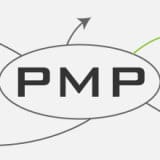PMI-ACP Formulas and Calculation for PMI-ACP Exam Demystified

I hear you say “What? Is there really any calculation questions for the PMI-ACP® Exam?”
Yes, you read it right, there are some mathematical concepts and formulas you may need to know in order to be fully prepared for the PMI-ACP® Exam. There are quite a few calculation type questions for the PMP Exam and there is no reason why PMI would not request you to solve some calculation questions for the PMI-ACP® Exam.
But don’t worry. The mathematical concepts and formulas required for the PMI-ACP® Exam is just a fraction of what are required for the PMP Exam and they are on the easy side too. Read below for the full explanation.
Article Highlights
PMI-ACP® Exam Formulas and Concepts
Below is a summary of the formulas and mathematical concepts that are required for the PMI-ACP® Exam:
| Name (Abbreviation) | Formula | Interpretation |
|---|---|---|
| Internal Rate of Return (IRR) | The formal definition of IRR is “the discount rate at which the net present value of all cash flows from a particular project equal to zero“.Just need to know IRR is used while selecting which project to proceed, when comparing different project, the higher the IRR, the better. | |
| Net Present Value (NPV) | The formal definition of NPV is “the present value of the future returns from the project minus investment“. Since money will depreciate over time owing to inflation, the present value will give a better judgement on the actual values realised on capital investment.Just need to know NPV is used while selecting which project to proceed, when comparing different project, the higher the NPV, the more profitable the project is. | |
| Return on Investment (ROI) | The formal definition of ROI is “the return resulting from the investment in the project“.Just need to know ROI is used while selecting which project to proceed, when comparing different project, the higher the ROI, the better. | |
| Schedule Performance Index (SPI) |
SPI = EV/PV EV = Earned Value |
< 1 behind schedule = 1 on schedule > 1 ahead of schedule |
| Cost Performance Index (CPI) |
CPI = EV/AC EV = Earned Value |
< 1 Over budget = 1 On budget > 1 Under budget sometimes the term ‘cumulative CPI’ would be shown, which actually is the CPI up to that moment |
| Schedule Variance (SV) |
SV = EV – PV EV = Earned Value |
< 0 Behind schedule = 0 On schedule > 0 Ahead of schedule |
| Cost Variance (CV) |
CV = EV – AC EV = Earned Value |
< 0 Over budget = 0 On budget > 0 Within budget |
Conclusion
That’s it. These seven formulas are all that you need to remember for the PMI-ACP® Exam.
The PMI-ACP® exam actually focuses on concepts, tools, processes and techniques of Agile project management rather than asking you to do calculation. In my PMI-ACP® Exam paper, I got no calculation type questions at all. That said, since every set of PMI-ACP® Exam questions are different, it is still possible that you may encounter some PMI-ACP® calculation question on the topics of earned value calculation and project justification. The above discussion should be “barely sufficient” for your Agile exam preparation.
Further Reading
If you would like to know more about the others mathematical formulas for calculating earned values, you are advised to take a look at the PMP Certification Formulas and Calculation Guide.
Most Popular PMI-ACP Certification Articles
- Top 10 Tips to Prepare for the exam (I got all Proficient in my exam)
- How to Get 21 Contact Hours?
- Over 600+ FREE Quality Mock Exam / Practice Questions





 Hi, my name is Edward Chung, PMP, PMI-ACP®, ITIL® Foundation. Like most of us, I am a working professional pursuing career advancements through Certifications. As I am having a full-time job and a family with 3 kids, I need to pursue professional certifications in the most effective way (i.e. with the least amount of time). I share my exam tips here in the hope of helping fellow Certification aspirants!
Hi, my name is Edward Chung, PMP, PMI-ACP®, ITIL® Foundation. Like most of us, I am a working professional pursuing career advancements through Certifications. As I am having a full-time job and a family with 3 kids, I need to pursue professional certifications in the most effective way (i.e. with the least amount of time). I share my exam tips here in the hope of helping fellow Certification aspirants!






I am absolutely so grateful for all your advice!! The way you write is very easy to understand the concepts and provides excellent guidance on what the test will be like and what to do to prepare for it. I can’t thank you enough!
Hi Tera,
Hope my sharing here can help you pass the PMI-ACP Exam in first try.
Wish you PMI-ACP success!